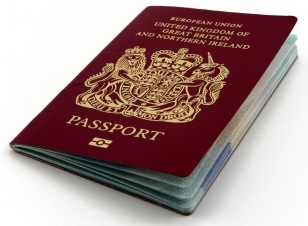Landlords call for illegal tenant immigration checks to be scrapped in wake of High Court ruling

Scotland’s largest landlord membership organisation has called on the UK Government to scrap legislation which makes landlords responsible for checking the immigration status of tenants, after the High Court in London ruled the law was in breach of human rights legislation.
Under the ‘Right to Rent’ law, landlords are faced with the prospect of prosecution if they know or have “reasonable cause to believe” that the property they are letting is occupied by someone who does not have the right to rent in the UK. It was introduced by Theresa May as home secretary as a key plank of the government’s ‘hostile environment’ for illegal immigrants.
Delivering his verdict in the High Court last week, Mr Justice Martin Spencer ruled that the scheme breached the European Convention on Human Rights on the basis that it led to discrimination against non-UK nationals with the right to rent and British ethnic minorities.
It would be illegal to roll the scheme out in Scotland, Wales and Northern Ireland without further evaluation, the judge added.
In a damming verdict, Mr Justice Spencer concluded that discrimination by landlords was taking place “because of the scheme”. He went on to conclude that “the government’s own evaluation failed to consider discrimination on grounds of nationality at all, only on grounds of ethnicity”.
The judge continued by finding that the Right to Rent “does not merely provide the occasion or opportunity for private landlords to discriminate but causes them to do so where otherwise they would not”, describing such discrimination by landlords a being “logical and wholly predicable” when faced with potential sanctions and penalties for getting things wrong.
He concluded: “The safeguards used by the government to avoid discrimination, namely online guidance, telephone advice and codes of conduct and practice, have proved ineffective. In my judgment, in those circumstances, the government cannot wash its hands of responsibility for the discrimination which is taking place by asserting that such discrimination is carried out by landlords acting contrary to the intention of the scheme.”
The Scottish Association of Landlords (SAL) had previously signed a joint letter with the Scottish Government calling on the law to be scrapped.

John Blackwood
John Blackwood, chief executive of SAL, said: “SAL has been against this legislation since it was first proposed in 2015 and has actively campaigned against it in conjunction with the Scottish Government, landlord bodies and human rights groups across the UK.
“Now that the High Court has ruled the law illegal, the UK Government must immediately take steps to abolish this law which only encouraged unfair discrimination against non-UK nationals and British ethnic minorities.
“Landlords act in a fair and balanced manner as they should, but this law sought to undermine that approach and must now be abolished for good.”
The Residential Landlords Association (RLA) joined with Liberty to intervene in a case brought by the Joint Council for the Welfare of Immigrants (JCWI) to have the policy declared as incompatible with human rights on the grounds that it was leading to discrimination against non-UK nationals who might be in the country legitimately and British ethnic minorities.
Recent research by the RLA which represents landlords in England and Wales, found that the fear of getting things wrong led to 44% of private landlords being less likely to rent to those without a British passport. It found also that 53% of landlords were less likely to rent to those with limited time to remain in the UK, whilst 20% said that they were less likely to consider letting property to EU or EEA nationals. Similar findings have been found by the JCWI. Significantly, during the course of the case government research emerged which confirmed a significant proportion of landlords were unwilling to rent to people without British passports.
The ruling comes following a report published last year by David Bolt, independent chief inspector of borders and immigration, which concluded that the Right to Rent has “yet to demonstrate its worth as a tool to encourage immigration compliance” and that the Home Office was “failing to coordinate, maximise or even measure effectively its use, while at the same time doing little to address the concerns of stakeholders”.
Academics at Oxford University suggest that the foreign-born population is almost three times as likely to be in the private rental sector compared to the UK-born population.
The RLA and the JCWI have written to the Home Secretary seeking an urgent meeting.
John Stewart, policy manager for the Residential Landlords Association, said the ruling is “a damning critique” of a flagship government policy.
He added: “We have warned all along that turning landlords into untrained and unwilling border police would lead to the exact form of discrimination the court has found.
“We call on the government to accept the decision, scrap the Right to Rent, and consider what else can be done to sensibly manage migration, without having to rely on untrained landlords to do the job of the Home Office.”
Chai Patel, legal policy director for the Joint Council for the Welfare of Immigrants, said: “There is no place for racism in the UK housing market. Now that the High Court has confirmed that Theresa May’s policy actively causes discrimination, Parliament must act immediately to scrap it. But we all know that this sort of discrimination, caused by making private individuals into border guards, affects almost every aspect of public life – it has crept into our banks, hospitals, and schools. Today’s judgment only reveals the tip of the iceberg and demonstrates why the hostile environment must be dismantled.”









